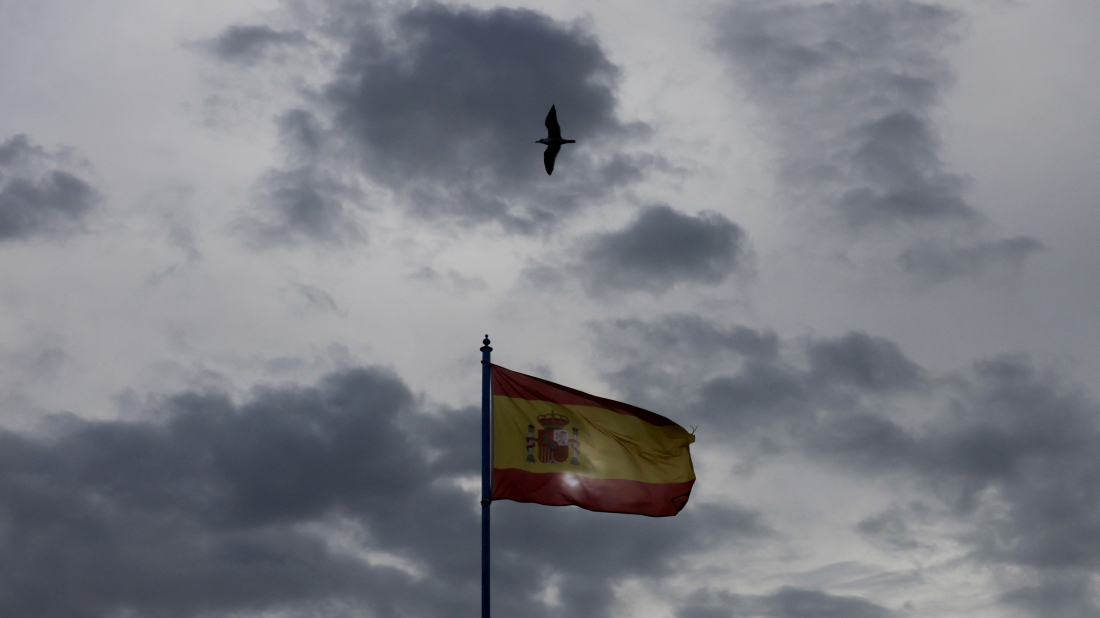live American F‑15s downed over Kuwait in friendly fire: All the latest news on the Iran strikes
Iran has been at the centre of a rapidly escalating regional crisis since Saturday, when U.S. and Israeli military strikes hit Tehran. Th...

France, Spain, Kenya, and several other nations announced on Monday a joint pledge to tax premium-class airline passengers and private jet users, in a move aimed at raising billions of dollars for climate action and sustainable development.
The agreement, unveiled at the opening of a major United Nations development summit in Seville, marks one of the first commitments under the newly launched 'Sevilla Platform for Action' — a framework intended to revamp global financing mechanisms for developing countries.
In addition to France and Spain, the initiative is backed by Barbados, Kenya, Benin, Somalia, Sierra Leone, and Antigua and Barbuda. The plan will receive technical support from the European Commission and the Global Solidarity Levies Task Force, which has been advocating for innovative financing tools to address climate and development challenges.
“The aim is to help improve green taxation and foster international solidarity by promoting more progressive and harmonised tax systems,” said the office of Spanish Prime Minister Pedro Sanchez.
As traditional development aid from wealthier nations declines, especially amid rising fiscal pressures, participating countries say targeted taxes on high-emission sectors offer a fair and effective way to mobilize resources. The aviation sector, long criticized for its environmental impact and relative tax immunity, is seen as a high-potential revenue source.
Kenyan President William Ruto welcomed the initiative but emphasized that global action must follow political commitment.
“Many of the ideas are not new, as different countries have had such levies,” Ruto said. “What we need here is political will. We cannot keep talking about change without implementing it. The world is watching and expecting real outcomes.”
Environmental advocates also praised the move. “This is an important step towards ensuring that the binge users of this undertaxed sector are made to pay their fair share,” said Rebecca Newsom of Greenpeace.
She added that the “obvious” next step would be to impose similar accountability on the oil and gas industry.
The aviation levy is part of a broader push by the Global Solidarity Levies Task Force to explore taxes on other high-emission sectors such as maritime shipping, fossil fuel extraction, cryptocurrency trading, and ultra-high-net-worth individuals.
The proposal is still in its early stages, with details on implementation, collection, and distribution yet to be finalized. But supporters say it could generate significant revenue while signaling a shift toward climate justice and equitable development financing.
Follow the latest developments and global reaction after the U.S. and Israel launched “major combat operations” in Iran, prompting retaliation from Tehran.
Ayatollah Alireza Arafi has moved into a pivotal constitutional role following the death of Supreme Leader Ayatollah Ali Khamenei, becoming the clerical member of Iran’s temporary leadership council under Article 111 of the Constitution of the Islamic Republic of Iran.
Iran has been at the centre of a rapidly escalating regional crisis since Saturday, when U.S. and Israeli military strikes hit Tehran. The attack prompted retaliatory strikes by Tehran across the Middle East, civillian casualties, maritime disruptions and international diplomatic responses.
The Kremlin is utilising the recent United States and Israeli military strikes on Iran to validate its ongoing war in Ukraine. Russian officials are pointing to the escalation in the Middle East as evidence that Western nations do not adhere to international rules.
Türkiye raised its security level for Turkish-flagged vessels in the Strait of Hormuz to Level 3 on Sunday (2 March). The development follows Iranian restrictions on shipping after U.S. and Israeli strikes and confirmation of Supreme Leader Ali Khamenei’s death.
The UK said it's allowing the U.S. to use its bases for defensive strikes against Iran amid escalating missile attacks, after a suspected drone strike hit a British airbase in southern Cyprus, causing limited damage.
The Kremlin is utilising the recent United States and Israeli military strikes on Iran to validate its ongoing war in Ukraine. Russian officials are pointing to the escalation in the Middle East as evidence that Western nations do not adhere to international rules.
European Union stands with its member states in the face of any threat, EU Commission President Ursula von der Leyen said in response to the drone strike that hit Britain's Royal Air Force base of Akrotiri in southern Cyprus overnight.
Start your day informed with AnewZ Morning Brief. Here are the top news stories for the 27th of February, covering the latest developments you need to know.
Protests broke out in Pakistan and Iraq on Sunday after Iranian state media confirmed that Supreme Leader Ayatollah Ali Khamenei had been killed in joint U.S.–Israeli strikes. At least nine people were reported dead in clashes near the U.S. consulate in Karachi.
You can download the AnewZ application from Play Store and the App Store.

What is your opinion on this topic?
Leave the first comment